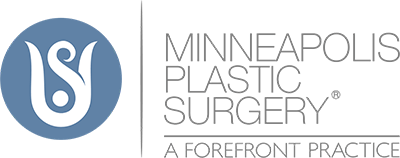Preparing for Breast Augmentation
You will need to see your primary care physician for a preoperative physical within the 14 day period prior to your scheduled breast enlargement surgery at our AAAASF-accredited surgery facility, just as you would at a hospital. This is necessary to ensure you are in good medical condition for an anesthetic and operation. All surgeries and types of anesthesia have some risk, and every effort is made to reduce risk. A preoperative physical is an essential part of this process, just as a pilot’s checklist is before takeoff.
Besides being in good health prior to surgery, you must avoid drugs that can increase your risk for bleeding. This would include prescription drugs such as Lovenox, Coumadin, Xarelto, Warfarin, Plavix, Eliquis, Pradaxa, Lixiana, and others. This also includes aspirin-containing products (Bayer™, Excedrin™, Anacin™, Bufferin™, Ecotrin™, and many multi-symptom medications–anything with acetylsalicylic acid [ASA, or aspirin]), ibuprofen-containing products (Advil™, Nuprin™, Mediprin™, Motrin™, and similar multi-symptom medicines containing ibuprofen), Aleve™ (naprosyn), or high-dose vitamins D and E (this interferes with vitamin K absorption, which is necessary for proper blood clotting). The dose of vitamins D and E in a daily multivitamin is not a problem, and a multivitamin in the weeks before surgery is a good idea. Except for the daily vitamin, all of the above medications should be avoided during the two weeks before and after surgery, since even one dose can interfere with proper blood clotting. Even a single baby aspirin can increase the risk of bleeding, capsular contracture, and re-operation.
You must also discontinue all herbal preparations you may be taking, as many of these remedies contain blood-thinning agents that can cause bleeding and require re-operation. Some herbal preparations can also interfere with anesthetic medications. Even over-the-counter appetite suppressants or “natural” diuretics can cause increased risk for anesthesia, and must be stopped a full two weeks before surgery.
If you have the Factor V Leiden gene, or other genetic bleeding/clotting disorders, you may need additional consultation with a Hematologist to minimize bleeding or clotting with this elective surgery. Oral contraceptive use, particularly in smokers, increases the potential for developing blood clots with any surgical procedure.
Tobacco use of any kind should be stopped completely two weeks before surgery to prevent post-operative coughing that can raise your blood pressure and increase the risk of bleeding or capsule formation, which can cause hard or painful breasts and require re-operation. If you are having a breast lift, the incisions needed to shape and lift the breasts may cause reduced circulation and difficulty healing; smoking even one cigarette, using nicotine gum, or exposure to second-hand smoke may cause areas of the breast skin or areola to die because of lack of circulation. Prolonged dressing changes, skin grafts, or additional surgery may be necessary if you continue even minimal tobacco or nicotine use or exposure. E-cigarettes or vaping with nicotine are not allowed.
On the day of your breast enlargement surgery, wear loose-fitting clothes, preferably something with front zipper so that it can be put on and taken off without raising one’s arms. You must bring a driver as you should not drive a car for the first two days after surgery or while on pain medications. Someone must also be with you the night of surgery, but this person does not need to be a nurse, just someone who can help with medications, ice bags, assist you to the bathroom, or answer the phone.

